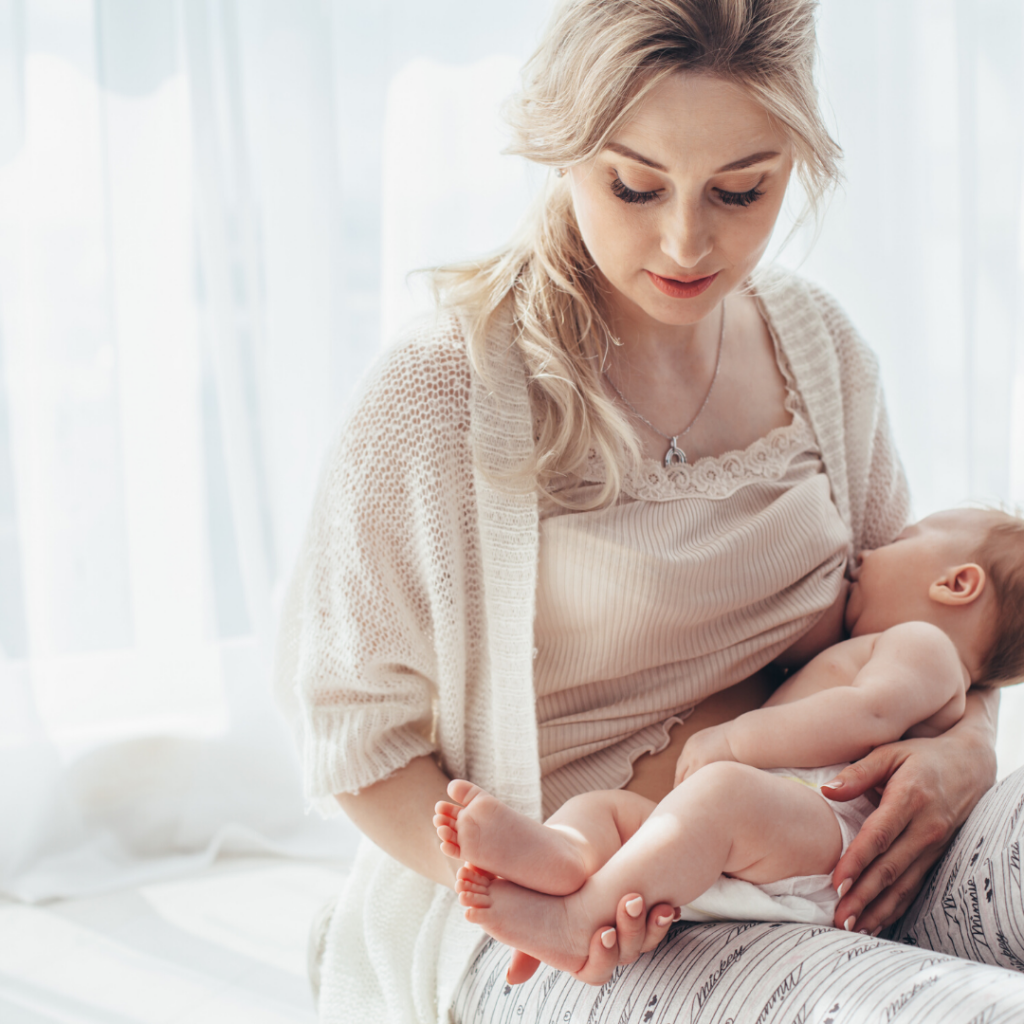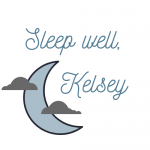
Imagine this, the house is silent, the baby is asleep, you finally watched that Netflix show you’ve been dying to watch, and now it’s time for bed. Unfortunately, your mind disagrees! Up to 40-60% of women will experience postpartum insomnia within 6 weeks after giving birth (Sivertsen, B., Hysing, M., Dørheim, S.K. et al., 2015). And while we would like to believe that insomnia just goes away soon thereafter, unfortunately, the same study shows that insomnia remained high at 41 % at year 2 postpartum.
So the question is what is triggering this insomnia and how can you get help in order to get the sleep you need. We will first talk about how insomnia typically comes about and then what is exacerbating it over time.
Pregnancy and the postnatal period are an especially vulnerable period for the development of insomnia and other sleep disturbances in women. We now know that insomnia during pregnancy is significantly associated with postpartum anxiety symptoms (Osnes RS, Roaldset JO, Follestad T, Eberhard-Gran M, 2019). Your body is changing including positioning, hormones, and not to mention those night sweats ( no you didn’t pee the bed, but now you are thanking yourself for purchasing that mattress cover)!
In the postpartum period, many people tell you about the sleep deprivation, but you assume it’s due to the frequent baby awakenings. In many cases it is, but your sleep is very disrupted which can make it harder to fall back asleep. For some women, it’s also harder to fall back asleep because your mind is racing and you can’t stop worrying about your baby. You also may have depression symptoms that can overlap with tiredness including low energy, restlessness, difficulty sleeping, or excessive sleepiness.
What is important to know is that depression, anxiety, and insomnia are all related, and often worsen each other, but having one alone does not cause the other. It is important to work on each piece of the puzzle. You aren’t going to fully improve your mental health without good sleep. You can’t be the best mama you can be on no sleep. So while I know it’s tempting to finish the dishes, write out those thank you notes, or watch another Netflix show I’m here to give you permission to make rest a priority in your life.
You aren’t going to fully improve your mental health without good sleep. You can’t be the best mama you can be without sleep. So while I know it’s tempting to finish the dishes, write out those thank you notes, or watch another Netflix show I’m here to give you permission to make rest a priority in your life.
I’ll end with some top tips to get some zzz:
- Bedtime routine – we always talk about one for kiddos, but develop one for yourself too! Consider journaling, reading a real book (put down that Bluelight phone after you’ve finished this blog 🙂 ), or listening to a guided meditation. Try headspace if you need a good one!
- Make a good bedroom environment– White noise machines aren’t just for baby! This one is my favorite. And if room sharing with baby still it will make you both have sweet dreams.
- Get the help you need! Treating your depression and anxiety will help you get to sleep faster and stay asleep longer. Cognitive-behavioral therapy and mindfulness-based therapy have been shown to be effective, as well as medication, in treating postpartum depression and anxiety.

References:
Osnes RS, Roaldset JO, Follestad T, Eberhard-Gran M. Insomnia late in pregnancy is associated with perinatal anxiety: a longitudinal cohort study. J Affect Disord 2019;248:155–65. Retrieved December 8, 2019 from: https://www.sciencedirect.com/science/article/pii/S0165032718322419
Sivertsen, B., Hysing, M., Dørheim, S.K. et al. Trajectories of maternal sleep problems before and after childbirth: a longitudinal population-based study. BMC Pregnancy Childbirth15, 129 (2015) doi:10.1186/s12884-015-0577-1


